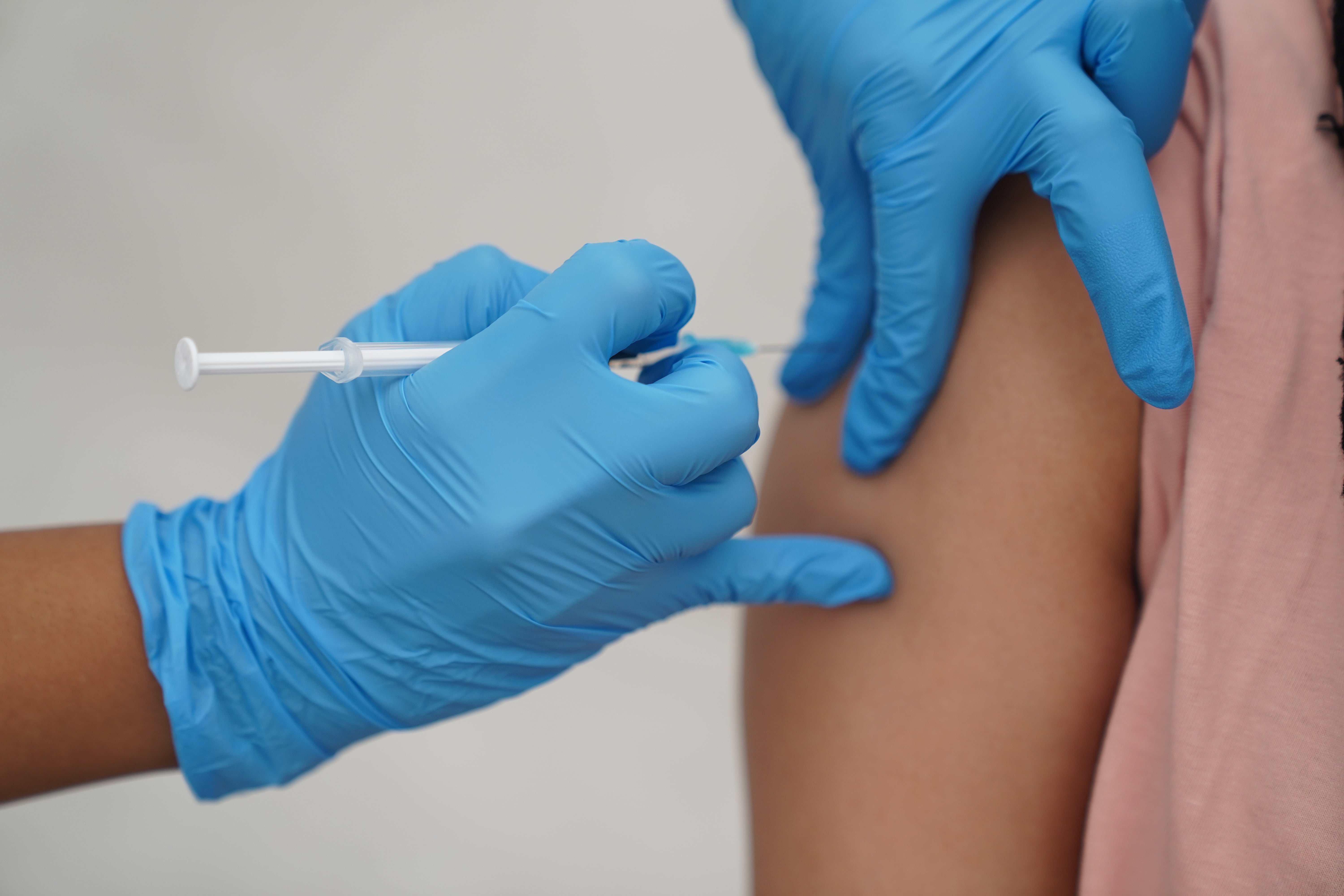Concern over ‘substantial and consistent’ decline in demand for Covid vaccines
Vaccine booster demand down following message of “less serious” impacts of Omicron

Your support helps us to tell the story
From reproductive rights to climate change to Big Tech, The Independent is on the ground when the story is developing. Whether it's investigating the financials of Elon Musk's pro-Trump PAC or producing our latest documentary, 'The A Word', which shines a light on the American women fighting for reproductive rights, we know how important it is to parse out the facts from the messaging.
At such a critical moment in US history, we need reporters on the ground. Your donation allows us to keep sending journalists to speak to both sides of the story.
The Independent is trusted by Americans across the entire political spectrum. And unlike many other quality news outlets, we choose not to lock Americans out of our reporting and analysis with paywalls. We believe quality journalism should be available to everyone, paid for by those who can afford it.
Your support makes all the difference.A major trust has warned it has seen a “substantial and consistent” decline in booster vaccination demand as daily jab levels decline.
Demand for booster vaccines has taken a hit following Christmas and New Year Holiday as rates in younger people having a booster have dropped.
Leeds Teaching Hospital Foundation Trust warned about the decline in board papers this week noting the decline may be linked to messages about the “less serious” nature of Omicron.
According to the latest data almost 50 per cent of 18 to 24-year-olds have yet to have a boost and 46 per cent of 25 to 29-year-olds.
Meanwhile, daily vaccination rates for boosters have dropped to 42,000, down from more than 100,000 on 31 December, despite promises from the government million a day would be jabbed by the New Year.
The government claimed this month it hit the target to offer all adults a booster vaccination by 31 December, and said 81 per cent of eligible adults have had their booster.
Latest data for 23 January showed 64 per cent of adults have had their booster or third jab – it is not clear whether the remaining 36 per cent are people who are not eligible.
In an analysis on Friday the Covid Actuaries Response Group said: “Since the New Year progress with booster jabs has continued to slow, with fewer than half a million done in England in the last week.”
The analysis said figures showed: “engaging with the young has been more difficult, even though these will have previously come forward for their full primary course.”
Last week the UK Health Security Agency said published a report showing third Covid vaccination doses slightly increased protection against hospitalisation.
According to its report a third dose has been linked to a 74 per cent reduced risk of hospitalisation in the first 2-4 weeks after vaccination. This drops slightly to a 66 per cent reduction 10 weeks after the jab.
The news comes as the UK drops its Covid-19 restrictions heading back to “Plan A”, meaning people are now no longer advised to work from home and masks are no longer mandatory.
In a release last week the government said vaccinations remained the “best defence” against Covid-19.
According to reports from the Health Service Journal the expiry date on thousands of Covid vaccine doses was extended after it was feared “millions” would be wasted this month.
Join our commenting forum
Join thought-provoking conversations, follow other Independent readers and see their replies
Comments